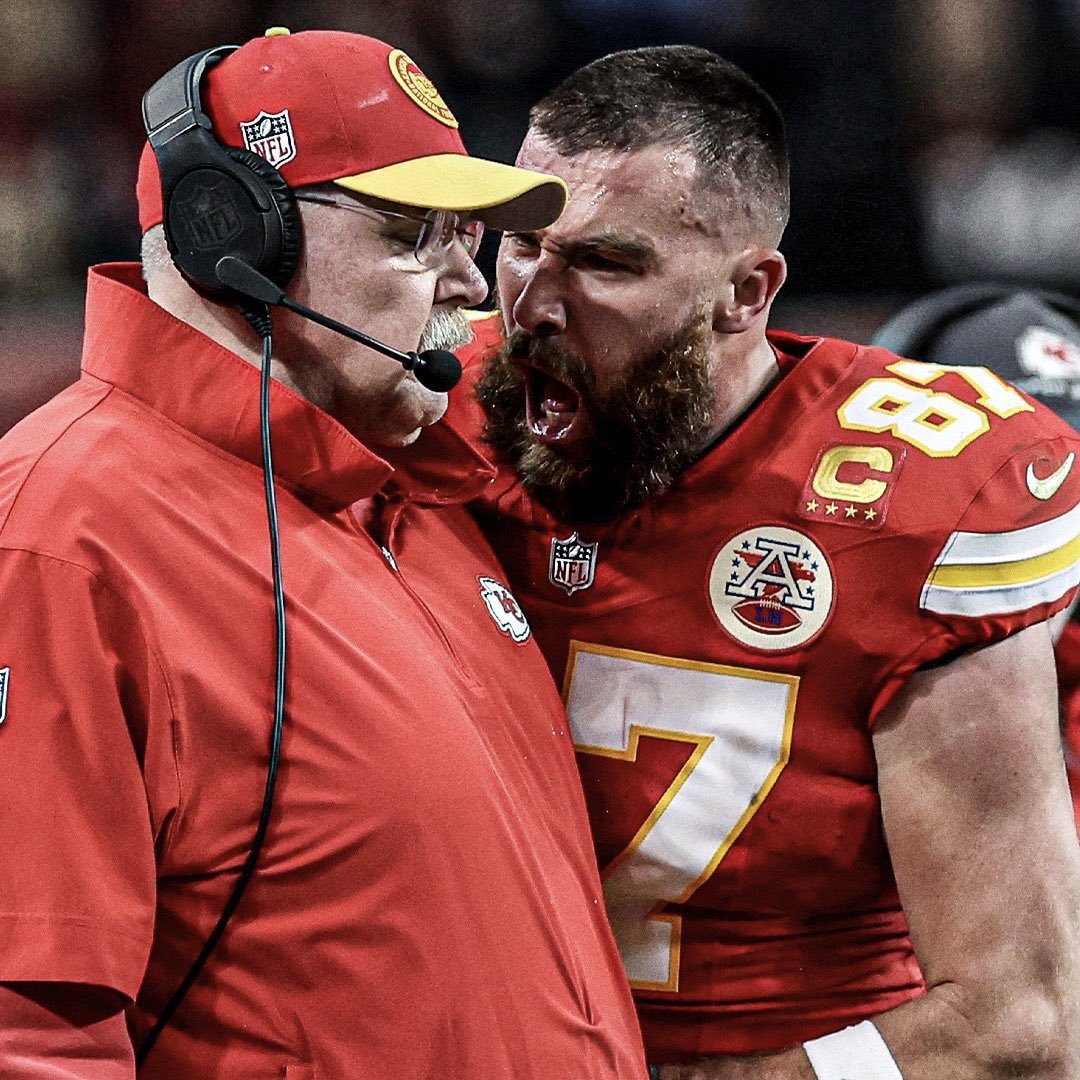The image of Kansas City Chiefs player Travis Kelce screaming at his coach, Andy Reid, on the sidelines of Super Bowl LVIII instantly started making the rounds on social media; the video of the interaction also shows the former aggressively bumping into the latter, throwing him off balance.
Cue the eye-rolling from a sizable portion of the population. “It’s just sports,” or, “He was a little over the top, but…” and then trailing off, the silence implying this setting is an exception to general standards of behavior. Maybe it is; this is a debatable issue. However, the acceptability of acting upon heightened emotions in sports in and of itself is not the issue that inspired this post. The point of this post is to draw a focus to accountability, to the imperative to manage our own emotions, and to showing fundamental respect for others.
In high-stakes situations, emotions tend to run high. But this does not justify any and every behavioral reaction. In our relationships with others, it is our responsibility to manage our emotions so that they do not cause harm to others.
What the world saw on the field between Travis Kelce and Andy Reid was in the context of the most consequential football game of the year, but not everyone naturally draws a line between acceptable behavior in such situations and acceptable behavior elsewhere. Children, certainly, cannot be assumed to see such behavior and understand it is not acceptable to behave similarly toward parents or friends, when they see such behavior modeled on a global stage and see how the adults around them respond. But many adults, as well, do not make the distinction as easily as you might think.
I have worked with athletes and executives alike for whom it was a learning curve to accept that it is not healthy or functional to bring into the home some of the behaviors that are tolerated in their workplace, let alone that can sometimes include the very behaviors that allow them to excel in their profession. The distinction does not automatically occur to everyone; in fact, it very commonly does not.
I have also worked with survivors of domestic violence who have observed the normalization of such behavior in society and by those around them. These survivors, as a result, fear that they won’t be supported, that their concerns will be minimized, if they were to admit that being on the receiving end of such treatment scared them or left them feeling stripped of dignity. The impression that they will be treated like they are overreacting can lead them to believe that maybe they are– that they should accept a partner screaming in their face or even pushing them off balance, because it’s not hitting them. As if escalation of violence is not a well-established phenomenon.
Why should physical violence be the point at which a line is crossed? And what degree of physical violence establishes that line, because aggressive bumping is apparently not a clear delineator? Does the context of what happens next determine the acceptability of such actions– is it all excused later if a desired outcome is achieved, as it appeared to be in the Super Bowl when the Chiefs won and Travis Kelce was joyfully leading the crowd in song from the stage? What about when, in the aftermath of a domestic incident, one partner brings the other flowers, or a parent offers affection a brief time after raging at their child?
Why should we think that children who see this behavior normalized are likely to grow into adults who understand the importance of managing their anger and other difficult emotions? At what point would that learning occur? We certainly didn’t see it on the sidelines between these two grown men during the Super Bowl, and this suggests that the learning does not just magically happen.
Sometimes we fall short of the standards others hold for us and that we hold for ourselves. All we can do after the fact is take accountability and put in the work to do better in the future. From what’s been reported, Travis Kelce apologized to Andy Reid, who accepted the apology. Perhaps, as Kelce’s coach, he will also encourage Kelce to work on his anger management skills. Perhaps Kelce also personally sees the value in doing so.
This was an interaction between two people, but given the world stage on which it unfolded, it wasn’t just between those two people. For those of us who watched this behavior and are seeing this moment become a meme that makes light of aggressively and threateningly disrespecting someone else’s personal boundaries, who do we need to have further conversations with? For those who believe that such behavior is acceptable in the context of sports, can you Monday morning quarterback your own reaction to seeing this unfold? Would you consider having a follow up conversation with whomever you watched the game with, with whomever might have been observing your reaction to this interaction, drawing the distinction of why this would not be acceptable in the rest of life (if you believe it to be acceptable in this context), reflecting on what might have been a more constructive way for someone who is upset to manage their anger in any circumstance?
The takeaway is not that your emotions during challenging moments– or Travis Kelce’s– are not justified. The takeaway is that having emotions does not give you free reign to invade others’ personal space or to otherwise disrespect or terrorize them. Having emotions gives you the responsibility to learn how to manage them, such that you are able to respectfully coexist with other people without degrading your or their basic humanity. Where you fall short, I hope you will offer a prompt and heartfelt apology, and make a meaningful commitment to doing better. As a society, we will see less instances of falling short the less we normalize rash acting out and the more we normalize learning and expecting the use of emotional regulation skills.
Michelle Lange, Psy.D., is a Licensed Clinical Psychologist and the owner of Relaction Therapy, providing mental health and wellness consultation services. Visit relaction.us to learn more about me.
Image credit: I used an uncredited image from social media, where variations of this image are being shared broadly. Images from the game to my knowledge belong to either CBS or the NFL. It is being used in the context of this article for educational/informational, non-commercial purposes.



